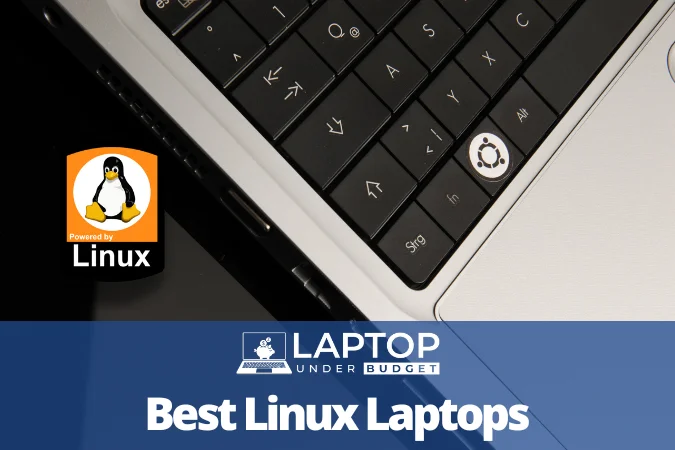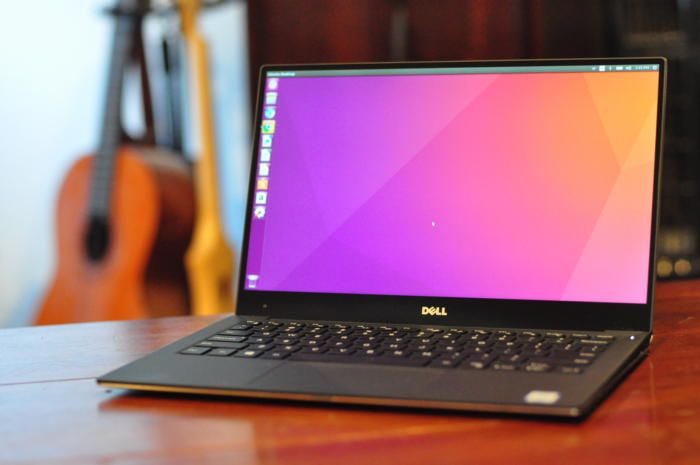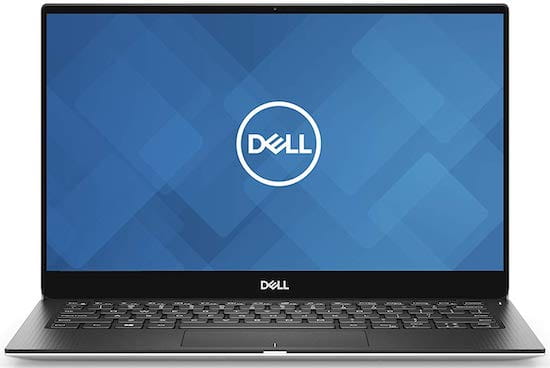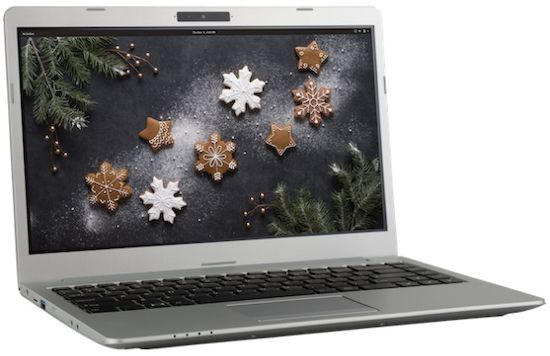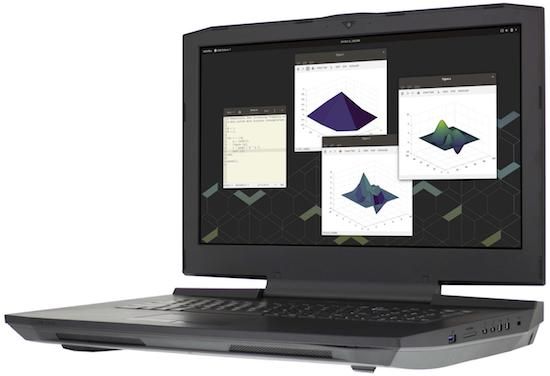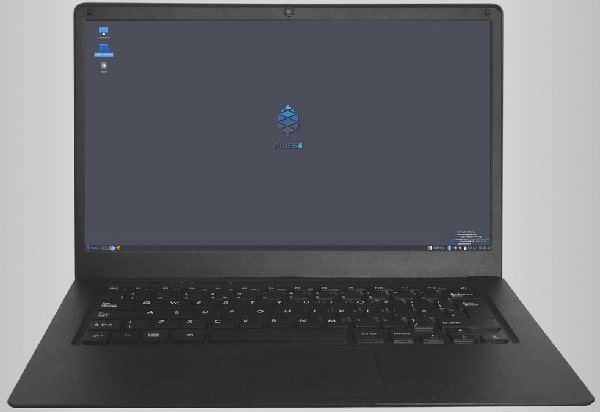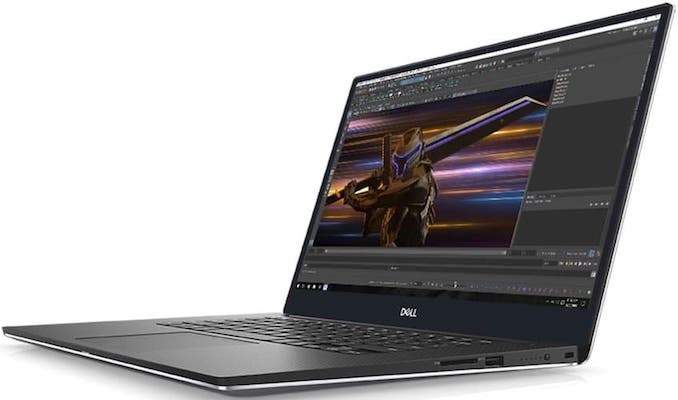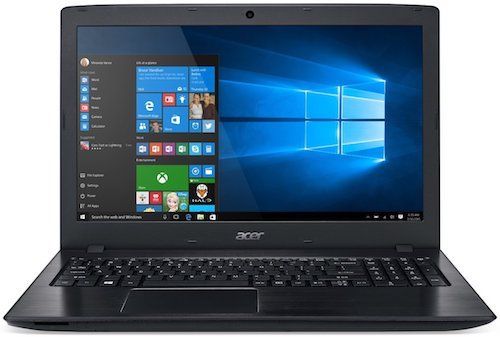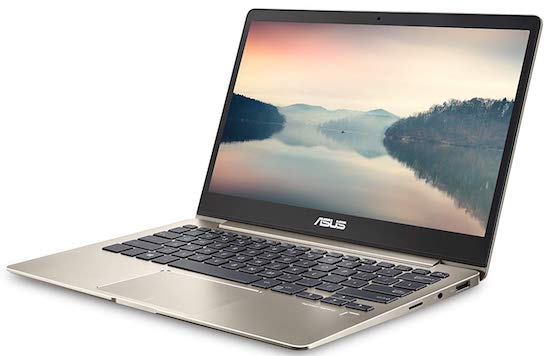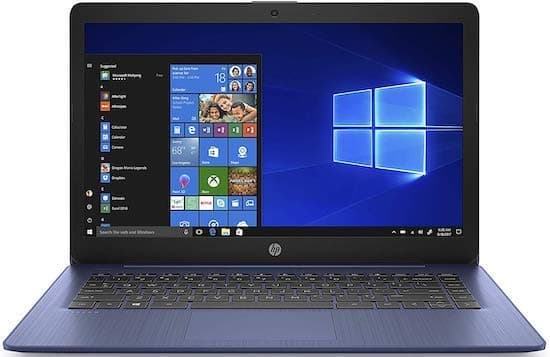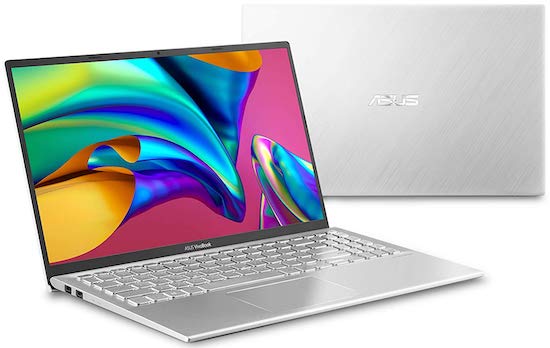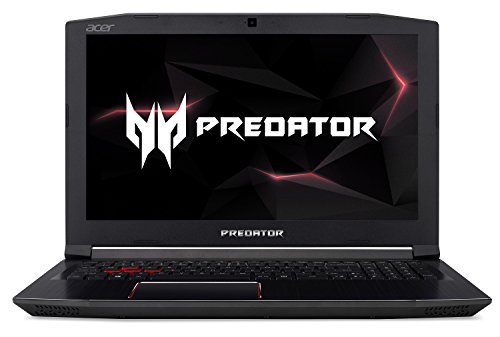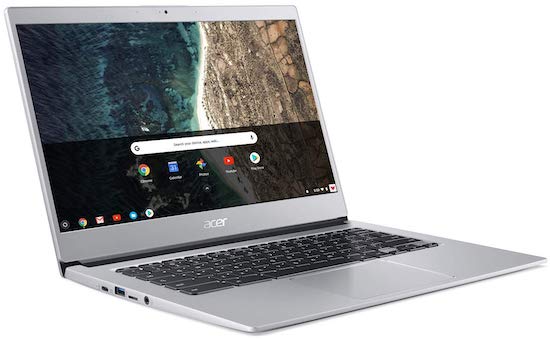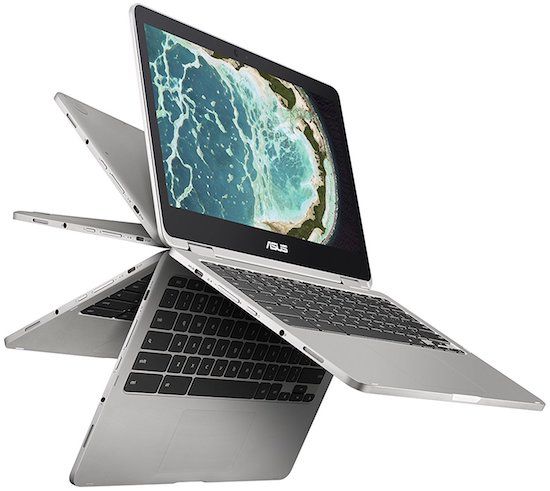Linux was once alienated by PC users as an Operating System and was sidelined by many manufacturers as well. But this was over two decades ago. Today, the OS has evolved to be known as the most powerful and durable among distributors.
But not everything about the OS has progressed with time. The installation of Linux on the laptop or a desktop back then was as easy as burning your CD with an ISO and pressing a few buttons. To make things even easier, Canonical saved you that trouble as well and sent you one for free. Today, before switching to Linux you need to conduct an in-depth hardware analysis because of its fastidious hardware compatibility. Linux as an OS is quite picky with hardware support, and before diving into its painful installation process, you need to make sure you are not wrestling with the wrong kind of hardware, designed to support only compliant OSs like Windows.
You need to be a proficient hardware shopper if you want to find the best linux laptop. Don’t worry if you are not, keep reading to become one.
If you’re a Linux geek and can find the best linux laptop for yourself on your own then feel free to skip to the list of our Top Picks of Best Linux Laptops.
If you’re a complete Linux novice, then I recommend you to continue reading below, to know about all the things that you need to take care while buying the laptop for linux operating system.
How to Buy The Best Laptop for Linux?
I think the simplest way to find the best laptop for ubuntu or any other linux distro, for to-be Linux users is to ask themselves these questions:
What features do I need?
At this point, it is the same as purchasing any another laptop; “features it should have”. Think about the reasons you want to switch to Linux and look for the appropriate hardware peripherals able to meet those needs. Just the RAM, GPU, processing power, external and internal cards, disk storage capacity etc., the usual stuff.
When you have shortlisted a few laptop models befitting your requirements, this is where the easy stuff ends.
Note – Buying a fancy touchscreen laptops for linux is not always the right decision because linux distros that supports touch interface are very limited. To name a few, Ubuntu and Fedora are the most popular ones among the touchscreen linux users. In case, if you want to use touchscreen with other distros then finding the right drivers for different touchscreen laptop models is a huge hassle.
Same goes for laptops with fingerprint scanner as well. While some popular linux distros like Ubuntu does support logging in with fingerprint but for most other distros you’ll have to find drivers on your own.
Can I save some money and buy an old or refurbished laptop for linux?
Of course, you can. When I mentioned the fussiness of hardware support in Linux, it didn’t imply towards them being ‘expensive’. In fact, it is one of the biggest reasons to switch to Linux. It works like a charm with old laptops and computers as well. Linux has the flexibility to run flawlessly on inexpensive, outdated hardware as opposed to Windows, offering a sub-standard performance spectrum on even high-end machines.
There is a lot of room to play with its versions as well. If a distro of Linux fails to acclimate with certain hardware units, you can always opt for the other. Take an example of Lubuntu. It is a lightweight base system with Lxde desktop and inhibits all the assets of the infamous Ubuntu.
The latter, however, might struggle with a system having less than 2GB of RAM. Whereas Linux’s flavor Lubuntu is known for its lightning fast performance and also comes bundled with an entire range of drivers.
Or should I just save myself the trouble and buy a pre-installed Linux laptop?
If all this hustle and bustle of rummaging laptop models and hardware is too much for you, there is always the pre-installed laptop option available for Linux (you’ll find our top picks of laptops with pre-installed Linux operating system listed below). Although this might confine your options in terms of hardware specifications and distros but is in fact the only fallback you need to embrace.
OK, but what do others say about laptops for Linux?
A second opinion never hurts. Considering the vast variation available in Linux involving laptop models, new PCs, old PCs, its distros – there are strong chances you might not find everything you need. Blog reviews and help forums are a good place to start and will give you some strong, personal insight about the laptop you have shortlisted as well but if you end up finding nothing at all that you can use, be prepared for some good and bad surprises.
Why Choose Linux over Windows and macOS?

Though all those efforts eventually pay off when you find the perfect laptop and Linux distribution to use. Linux as an OS, adds a lot of value to your daily solutions due to a number of reasons. One of them being its advanced customizability which allows Linux users the flexibility to mold their OS in accordance with their standards. This is one feature that its competitors, Windows and macOS lack.
Another persuasive factor to switch to Linux is the privacy and security it offers, which is a lot to ask these days from modern OSs. It is certainly an appreciable precept of Linux to respect a user’s discretion. With Linux, you are free from the frets of some company owning your personal data. Linux is structured in a manner that does not require a user’s personal data for profiling, nor does it have any incentives to store your data on a cloud for “safe-keeping”.
There is also a certain amount of stability that Linux has developed over the years with its distros. Rather than adding glitz and glamor like its competitors, Linux’s upgrades involve increasing OS stability, ease of usage and removing excessive baggage in each release.
From a personal standpoint, I believe the creators of Linux have maintained a conspicuous trajectory when it comes to improving their OS. As opposed to Microsoft which often releases with a disappoint of a version after a couple of Windows builds, and macOS that is restricting user control day by day, Linux’s upgraded features are here to stay and every release is a sure step forward rather than backwards. No matter how minor or major the change may be.
While there are lot other reasons to prove that linux is better than Windows and macOS, we would prefer to not discuss all of them here as this guide is more about laptops for linux and not why linux is a better OS. If you want to dive deeper into the comparison of these operating systems, then there are lot of in-depth comparison articles you can find on Google.
By now you might have made your mind whether you want a Linux laptop or not. Interested users, keep reading to find out the next step in buying the best linux laptop.
Best Linux Laptops – Top Picks
The considerations to deliberate upon when it comes to buying a Linux laptop are endless. Starting from hardware compatibility and ending on distros. Buying a best laptop for linux is a work of art.
If you are dabbling with Linux for the first time, you might want to familiarize yourself a little with its Distros. Linux Distros or “Distributions” are software packages which pack several open-source projects into an installable operating system.
I have already given a brief intro of Lubuntu in the beginning so let’s skip to Ubuntu – the most popular and our most recommended Linux distribution.
Ubuntu is the perfect place to start for Linux newbies. I say this because of its user-friendly interface that is a little different from traditional Windows. Easily installable, just requires an additional driver installing tool to get your hardwares rolling.
While Ubuntu is more of a smartphone cross-device focused operating system, Windows users might feel a little closer to home with Linux Mint. Mint is designed to improve the traditional desktop experience.
There are a lot of other linux distros to try. You can check out some of the most popular ones here and if you’re tech savvy enough to find your favorite linux distro on your own then Distrowatch is a great place to discover new linux distros and learn about some of the oldest linux distros at one place.
Now that you have surpassed the boring but the necessary information, let’s get to the good stuff.
Linux laptops can be classified into three groups from a user’s perspective:
Best Laptops with Pre-installed Linux OS –
| Dell XPS 13 Developer Edition (Most Recommended) | Intel Core i5-8265U | 8GB RAM (Expandable) |
| System76 Galago Pro | Intel Core i7-8565U | 8GB RAM (Expandable) |
| Pinebook Pro (Cheap Linux Laptop) | ARM Cortex A72 Dual-Core | 4GB RAM (Non-Expandable) |
| Dell Precision 5540 Workstation Laptop (For Power Users) | Intel Core i5-9400H | 8GB RAM (Expandable) |
Best Windows Laptops Compatible with Linux –
| Acer Aspire E15 (Most Recommended Laptop for Dual Booting Linux) | Intel Core i3-8130U | 6GB RAM (Expandable) |
| ASUS ZenBook UX331UA (Best Ultrabook for Linux) | Intel Core i5-8250U | 8GB RAM (Non-Expandable) |
| HP Stream 14 (Cheap Laptop for Linux) | AMD A4 9120E | 4GB RAM (Non-Expandable) |
| ASUS VivoBook S15 | Intel Core i5-8265U | 8GB RAM (Expandable) |
| Acer Predator Helios 300 Gaming Laptop | Intel Core i7-8750H | 16GB RAM (Expandable) |
Best Chromebooks for Linux –
| Acer Chromebook 514 | Intel Celeron N3350 | 4GB RAM (Non-Expandable) |
| ASUS Chromebook Flip (Best Convertible Chromebook for Linux) | Intel Core m3 | 4GB RAM (Non-Expandable) |
| Acer Chromebook 13 | Intel Core i3-8130U | 8GB RAM (Expandable) |
Best Laptops with Pre-installed Linux Operating Systems
There is a common misconception that all good laptops come with the ritual of wiping Windows clean and installing a Linux distribution from scratch but things are gradually changing. To break the stereotype, here are a few laptops that come loaded with a Linux OS.
1. Dell XPS 13 Most Recommended
Topping the list is one of the most renowned laptop – Dell XPS 13 which is the best Linux laptop available right now. Dangling between standard to steep price ranges, its various models start from around $900 and goes up to $1,900.
As we prefer budget machines, lets dive into the specs of Dell XPS 13 with Intel Core i5 processor. The display is absolutely gorgeous and one of its most attractive traits. The bezels are only a few millimeters thick and the 13.3-inch edge-to-edge full HD display is a treat to eyes. To sweeten up the deal even more, Dell threw in a option to get up to 16GBs of DDR3 RAM.
With its pre-installed Ubuntu Linux 18.04 OS, compilation of Linux Kernel is a matter of a couple of minutes and its hassle free optimization aspects make it the best linux laptop for developers.
Hardware Specifications of Dell XPS 13 Developer Edition:
| Processor | Intel Core i5-8265U Whiskey Lake Processor (Turbo up to 3.9GHz) |
| RAM | 8GB LPDDR3 2133MHz RAM (16GB Maximum) |
| Storage | 256GB SSD |
| Graphics | Intel UHD Graphics 620 |
| Display | 13.3 Inch Full HD InfinityEdge Anti Glare Display with 1920×1080 Resolution |
| Operating System | Ubuntu Linux 18.04 |
| Battery Life | Up to 19 hours |
| Weight | 2.7 lbs |
2. System76 Galago Pro
Packing a speedy 8th Gen Intel Core i7-8565U quad-core processor inside a sleek, minimalistic chassis, the Galago Pro gives off the look and feel of the ever classy MacBook Pro. Apart from its feather light aluminum body, there is a massive 8GB of RAM to handle your multitasking needs and it comes with one USB-C Thunderbolt, two USB 3.1, Ethernet, HDMI and mini display ports, and an SD Card Reader.
Not a complete winner unlike the Dell XPS 13, but of $1,100 its specs are undeniably lustrous. Offering the latest Whiskey Lake (8th Gen) version of Intel i7 chip, the Galago Pro has landed itself an advantage as the latest Linux release offers advanced support for new Intel processors.
The only downside is its below average battery life that for a price tag this exorbitant could have been improved.
Hardware Specifications of System76 Galago Pro Laptop:
| Processor | Intel Core i7-8565U 1.8GHz (8th Gen) Quad-Core Processor (Turbo up to 4.6GHz) |
| RAM | 8GB DDR4 2400MHz RAM (32GB Maximum) |
| Storage | 240GB SSD |
| Graphics | Intel UHD Graphics 620 |
| Display | 14-inch Matte Full HD Display with 1920 x 1080 Resolution |
| Operating System | Ubuntu Linux 18.04 LTS (64-bit) |
| Battery Life | Up to 5 Hours |
| Weight | 2.87 lbs |
If you are looking for a larger display models, then there is System76 Gazelle, which is a perfect Ubuntu contrivance, available in 15″ and 17″ sizes with newest gen hexa-core i7 processor and dedicated Nvidia GPU.
For power users like Network Administrators, there is a Serval Workstation laptop from System76 which can be bought with either 15.6-inch full HD display or beautiful 17-inch 4K display. On the hardware front, there are options to choose from Intel’s i5-9600K, i7-9700K or i9-9900K desktop CPUs paired with up to 64GB of RAM and up to Nvidia GeForce RTX 2080 dedicated GPU. Of-course laptop with such stellar configuration won’t be cheap but if you’re looking for the most powerful linux laptop then you won’t find any better option than System76’s Serval WS laptop.
By now you must have concluded that System 76 specializes in pre-installed Ubuntu laptop, desktop, and server hardware.
3. Pinebook Pro Cheap Linux Laptop
This is the cheapest linux laptop one can buy. Hence, it is perfect if you want to experiment with Linux.
Pinebook Pro is the best budget linux laptop which comes for as cheap as $200. With a full HD display of 14 inch, the Pinebook comes with an ARM Cortex dual-core processor and eMMC storage of 64GB.
Though everything else gives off a cheap vibe. From the shoddy keyboard to the mediocre battery life. Safe to say that Pinebook Pro is not a Linux based companion for the long haul, but a good place to start if you are on a strict budget or trialing Linux as an OS for your daily use.
Hardware Specifications of Pinebook Pro Linux Laptop:
| Processor | ARM Cortex A72 1.8 GHz 64-bit Dual-Core Processor |
| RAM | 4GB LPDDR4 RAM |
| Storage | 64GB eMMC |
| Graphics | Integrated |
| Display | 14.1-inch Full HD IPS Display with 1920 x 1080 Resolution |
| Operating System | Linux Distro |
| Battery Life | Up to 6 Hours |
| Weight | 3.9 lbs |
4. Dell Precision 5540 Workstation Laptop For Power Users
Now this is a complete workstation laptop for linux with the looks of a futuristic machine. The Dell Precision 5540 has the flexibility to mold itself into almost every kind of user’s routine. Be it advance video manipulation, high-performance gaming or transforming into a portable cinema; the punchy keyboard and sharp InfinityEdge display checks off most boxes of an all-rounder machine.
Loaded with a high performance hardware, the Precision 5540 is available with up to Intel Core i9 CPU, up to 64GB of RAM, Nvidia Quadro T2000 GPU and a 2TB SSD. While, this might not be the ideal specs for everyone, but for those who want a heavy lifting linux laptop to deal with virtualization, CAD, 3D Rendering and such stuff, this laptop is totally a dream come true. For casual users, the Dell Precision 5540 is also available in quad-core Intel i5 and six-core i7 variants.
So overall, Dell Precision 5540 packs enough power inside to provide premium performance for almost everything you throw at it.
You might traditionally find this machine loaded with a Windows 10 Pro OS, but as flexible as its specs are so is its customizability. You can order Precision 5540 in a number of flavors, including various Windows versions and Of Course, Ubuntu Linux.
Hardware Specifications of Dell Precision 5540 15-Inch Ubuntu Laptop:
| Processor | Intel Core i5-9400H 2.5GHz (9th Gen) Quad-Core Processor (Turbo up to 4.3GHz) |
| RAM | 8GB DDR4 2666MHz RAM (32GB Maximum) |
| Storage | 500GB 7200RPM Hard Drive |
| Graphics | Intel UHD Graphics 630 |
| Display | 15.6-inch full HD InfinityEdge Anti-Glare Display with 1920×1080 Resolution |
| Operating System | Ubuntu Linux 18.04 OS |
| Battery Life | Up to 8 Hours |
| Weight | 3.9 lbs |
You may like to check out: Best Workstation Laptops for CAD & 3D Rendering
Best Windows Laptops Compatible with Linux
While many PC manufacturing giants have welcomed Linux with open arms, there is still a long way for the OS to go before it can catch up with Windows as a default OS. Also, for some of you who don’t want to let go of their favorite windows PC and want to dual-boot Linux on their laptop, here are a few Windows based machines whose hardwares will work like a well-oiled wheel with Ubuntu.
5. Acer Aspire E 15 – Most Recommended Laptop for Dual Booting Linux
Acer with this Aspire model, went a long way to perfect literally everything they can to make a premium device under a budget. For less than $400, the Acer Aspire E 15 boasts a full-HD 15.6 inch LED backlit display, a sturdy battery life and a gigantic 1TB storage to dual-boot windows and linux on this laptop.
The plastic body, keyboard and the speakers are quite sub-standard, but considering the price tag I don’t think there is any reason to complain. The size of Acer Aspire E 15 is considerably large, and given its 5.2 pound weight it’s safe to mark this one as a non-portable machine. But, that is about it for the negatives, the 8th Gen Intel Core i3 processor and 6GB of RAM perform surprisingly good and for multitaskers on a low budget, this is a match made in heaven.
Even it provides RAM and storage upgrading options. What else do you need? Therefore, Acer Aspire E15 E5-576-392H is our most recommended budget laptop for linux to install your favorite linux distribution and enjoy freedom of open source computing.
Read: Full review of Acer Aspire E 15 E5-576-392H Laptop
Hardware Specifications of Acer Aspire E 15 E5-576-392H Laptop:
| Processor | Intel Core i3-8130U 2.2GHz 8th Gen Dual-Core Processor (Turbo up to 3.4GHz) |
| RAM | 6GB DDR3 RAM (Expandable up to 32GB) |
| Storage | 1TB 5400RPM Hard Drive |
| Graphics | Intel UHD Graphics 620 |
| Display | 15.6-inch Full HD Widescreen LED-lit Display with 1920×1080 Resolution |
| Operating System | Windows 10 Home 64-bit OS |
| Battery Life | Up to 13 Hours |
| Weight | 5.27 lbs |
Though if you are a slightly advanced user with a little more special needs than an average processor, check out the Acer Aspire 5 laptop which is also a great laptop for linux. It is slightly more expensive alternative (if you got the appetite for it) with an 8th Gen Intel i5-8265U processor, 8GB of DDR4 RAM, and fast 256GB of SSD storage. | [amazon fields=”B07RF2123Z” value=”price”] from Amazon
6. ASUS ZenBook UX331UA Best Ultrabook for Linux
With the power, packaging and performance of a $1000 worth laptop, The ASUS Zenbook bears a cost of only $700. The 1080p HD display is sharp and vibrant which is great for video streaming and light gaming. However, hardcore gamers might need a little more solidity than an Intel UHD 620 Graphics that it offers.
The battery life is a huge plus. Known to last over 10 hours on backup, the ASUS Zenbook has managed to achieve a decent rating over Acer Swift 3 and HP Envy 13t. The processor is not so bad itself, a kaby lake-R Intel Core i5-8250U paired with an 8GB of RAM and 256GB SSD, maintains a solid ground on performance and multitasking capabilities in any linux distro that you may install.
The only downside of buying this laptop for linux is, it has a fingerprint scanner so finding right packages and drivers for getting it working with all the linux distros that you install can be little troublesome. But, if you’re fine with unlocking your laptop traditionally with a password then ASUS ZenBook UX331UA is the best ultrabook for linux that you can buy right now.
Hardware Specifications of ASUS ZenBook UX331UA-AS51 Ultrabook for Linux:
| Processor | Intel Core i5-8250U 1.6GHz (8th Gen) Quad-Core Processor (Turbo up to 3.4GHz) |
| RAM | 8GB DDR3 RAM (Non-expandable) |
| Storage | 256GB SSD |
| Graphics | Intel HD Graphics 620 |
| Display | 13.3-inch Full HD NanoEdge Display, 1920 x 1080 resolution |
| Operating System | Windows 10 Home 64-bit OS |
| Battery Life | Up to 14 Hours |
| Weight | 2.5 lbs |
You may like to check out: Best Laptops Powered by Intel Core i5 Processor
7. HP Stream 14 Cheap Laptop for Linux
Okay let’s get down to some REAL saving now. If you are on a tighter budget, looking for a Linux AND Windows compatible machine, HP offers exceptional value for money with their HP Stream 14.
This is not exactly a premium machine (and not that you were even expecting it to be) but does meet the needs of an average user. Based on its price tag and specs, it is obvious that HP Stream is targeted primarily at students, and domestic usage.
For $230, HP is offering a pretty standard 14 inch display, a 4GB RAM and a 64 GB built-in storage packed inside a royal blue, rose pink or diamond white. The HD display is nowhere near extraordinary, nor is the uncomfortably stuff keyboard but overall offers much more than an average laptop at this price. Thankfully, the battery life is extraordinary. During our test it lasted up to 9 hours which is really great considering the price.
Note – You cannot dual boot Windows and Linux OS on this laptop because of its low storage space. You can either install Windows or Linux OS at a time and use it. Even if you manage to dual-boot both the OSs, it wouldn’t be a good computing experience.
Hardware Specifications of HP Stream 14 Cheap Linux Laptop:
| Processor | AMD A4-9120E 1.5 GHz Dual-Core Processor (Turbo up to 2.2 GHz) |
| RAM | 4GB DDR4 RAM (Non Expandable) |
| Storage | 64GB eMMC |
| Graphics | AMD Radeon R3 |
| Display | 14-inch Diagonal HD BrightView WLED backlit Display with 1336 x 768 Resolution |
| Operating System | Windows 10 Home in S mode |
| Battery Life | Up to 14 Hours |
| Weight | 2.8 lbs |
The Acer Aspire 1 is another excellent option in the same price range which comes with an Intel Celeron N4000 dual-core processor paired with 4GB of RAM and 64GB of eMMC storage. Moreover, it offers a 14-inch display with full HD resolution which is excellent considering the price of this laptop. So, overall the Acer Aspire 1 is a lot better option than HP Stream 14 if you are looking for an inexpensive laptop with good display. | Check Price on Amazon
You may like to check out: Best 14-Inch Laptops
8. ASUS VivoBook S15
With dynamic looks, ASUS VivoBook S15 starts at around $700 but the battery life is nothing short of disappointing. At an exorbitant cost, the battery life is quite ordinary but thankfully it has a quick charging feature which charges up to 60% of the laptop battery in just 49 minutes. Other than that, the 15-inch display is remarkably good and is a sure head turner if used in public.
The inside is just as lustrous as the outside. Packing an 8th generation quad-core Intel Core i5 processor paired with 8GB of RAM and 256GB of solid state drive storage, the laptop is perfect for power users who wants to run Linux OS alongside Windows and take benefit of both worlds.
It also comes with all the essential ports and slots including the USB Type-C 3.1 port. With a feather light design (just 3.9 pounds), the ASUS VivoBook S15 is the best linux laptop for businesspeople with a lot of storage to dual boot operating systems.
Hardware Specifications of ASUS VivoBook S15 Laptop:
| Processor | Intel Core i5-8265U 1.6GHz Quad-Core Processor (Turbo up to 3.9GHz) |
| RAM | 8GB DDR4 RAM (Expandable) |
| Storage | 256GB M2 PCIe NVMe Solid State Drive (Expandable) |
| Graphics | Nvidia GeForce MX250 GPU with 2GB DDR5 Graphics Memory |
| Display | 15.6-inch Full HD NanoEdge Display with 178° Viewing Angle |
| Operating System | Windows 10 Home 64-bit OS |
| Battery Life | Up to 6 Hours |
| Weight | 3.97 lbs |
9. Acer Predator Helios 300 Gaming Laptop
Maintaining versatility in this list, I am going to address all sorts of users and now comes the pro gamers. Such users have slightly peculiar needs and a little more amenable budget. The Acer Predator Helios 300’s star feature is the Nvidia GeForce GTX 1060 GPU but yes, it comes with a price and that is around $1000.
Though the pricing factor is much more accommodating than others in the race, hence ending up on a best laptops for linux list. The VR-ready gaming beast boasts a 144Hz 15.6-inch full HD display which is not the sharpest and brightest you can get, but it has the fastest refresh rate display among the gaming laptops in its price range. The speakers are in the right place and the sound is quite cool for gaming with a perfect balance between pitch and intensity.
Of course gamers wouldn’t settle for anything less than a hexa-core Intel Core i7 processor and lightning fast 16GB RAM. The multi-tasking on this machine doesn’t need to be specified as its quite obvious, although the battery life is impressive as well, lasting for over 6 hours without an outlet.
But if the cost is still a little too much for your taste, try the cheaper alternative, MSI GF63 9SC-614 Gaming Laptop with the 9th Gen Intel Quad Core i5 processor and 8GB of RAM. Yeah, it doesn’t offer the spectacular GTX 1060 GPU but for $799 you’d be getting GeForce GTX 1650 Graphics which is also a very good GPU for playing games and doing photo or video editing on Linux.
Read: Full review of Acer Predator Helios 300 Gaming Laptop
Hardware Specifications of Acer Predator Helios 300 High Performance Laptop for Linux:
| Processor | Intel Core i7-8750H 2.2GHz Six-Core Processor (Turbo up to 4.1GHz) |
| RAM | 16GB DDR4 RAM |
| Storage | 256GB SSD (With Empty HDD/SSD slot) |
| Graphics | Nvidia GeForce GTX 1060 6GB DDR5 Graphics |
| Display | 15.6 Inch Full HD Widescreen IPS Display with 144Hz refresh-rate |
| Operating System | Windows 10 Home 64-bit OS |
| Battery Life | Up to 7 Hours |
| Weight | 5.5 lbs |
Best Chromebooks for Linux
Chromebooks are cheap alternatives for Linux users. Crammed up with Linux compatible drivers, the Chrome OS is quite similar to a Linux desktop interface but don’t exactly work as Ubuntu beasts. The Chromebooks are not designed to support the needs of power users, nor are they a good fit for code compilation. The most you can expect out of them is lightweight multitasking and seamless hardware compatibility at a budget price.
In case if you’re wondering, what linux distro will be best for the low-end hardware of chromebooks then here are few linux distros that works well with most of the chromebook models.
In case, if you want to install Ubuntu on Chromebook, here’s a detailed step by step guide on how to install Ubuntu on Chromebook with Crouton.
10. Acer Chromebook 514
Possessing the look and feel of a premium laptop, the Acer Chromebook 514 would cause you a total damage of $250 only. With that, you will also get a crisp 1080p 14-inch display screen with an aluminum chassis.
With the Intel Celeron dual-core N3350 processor, and 4GB of RAM you get enough room to breathe and run any linux distro you want. Although it comes with only 32 GB of built-in memory, it has an SD card slot to extend its storage and accommodate more files. Moreover, it comes with a very responsive touchpad and a backlit keyboard which is a rare scene at this price range.
But if you have higher expectations from a near $300 laptop, you can try the even cheaper alternate- the Acer Chromebook 11, with 4GB RAM and even marginal 16GB internal memory, though it does come with an SD card slot.
It’s safe to say that these laptops are designed to be rugged and support only basic usage alongside providing enough room to work with multiple webpages. For users who rely on heavy media manipulation, code compilation or advanced design tools, check out other chromebooks for linux mentioned below.
Hardware Specifications of Acer Chromebook 14:
| Processor | Intel Celeron N3350 Dual-Core Processor (Turbo up to 2.4GHz) |
| RAM | 4GB LPDDR4 RAM |
| Storage | 32GB eMMC (Expandable via SD card slot) |
| Graphics | Intel HD Graphics |
| Display | 14 Inch Full HD IPS LED-backlit Display |
| Operating System | Chrome OS |
| Battery Life | Up to 12 Hours |
| Weight | 3.0 lbs |
11. ASUS Chromebook Flip – Best Convertible Chromebook for Linux
The best chromebook for linux with convertibility. The ASUS Chromebook Flip C302CA-DHM4 is definitely an upgrade from traditional notebooks but as the specs ascended, so did the price. For $460, you will be getting a robust machine for sure, with an extended battery life and strong performance, but Chromebooks just can’t seem to ace Android compatibility which somehow they improved with FLIP but they still have a long way to go.
Well, who cares? Any ways you are going to install Linux on it. Right?
Being a convertible, expectations extend towards its usability as a tablet but you need to find the right linux distro to work with touchscreen and all other versatility features that this chromebook offers.
But the Notebook definitely puts your money in the right place and offers comfortable hardware controls with an elegant chassis and a garish display.
Hardware Specifications of ASUS Chromebook Flip Convertible Linux Laptop:
| Processor | Intel Core m3 2.2GHz Processor |
| RAM | 4GB DDR3 RAM (Non Expandable) |
| Storage | 64GB eMMC |
| Graphics | Intel HD Graphics |
| Display | 12.5″ Full HD Touchscreen Display |
| Operating System | Chrome OS |
| Battery Life | Up to 10 Hours |
| Weight | 2.65 lbs |
If you are not into a 2-in-1 form factor then ASUS C425 Chromebook’s clamshell design is as pleasing as any $1000+ high-end ultrabook. It has an all-aluminum chassis that weighs just 2.8 lbs and comes with a bright and vivid 14-inch Full HD IPS display with tiny bezels. On the hardware front, it bolsters an Intel Core M3-8100Y processor with 8GB of RAM and 64GB of eMMC storage. All combined output enough power to run almost any linux distro smoothly. With all the required ports lined on either side with an SD card slots to expand the storage and premium features like a full-backlit keyboard, the ASUS C425 is also an excellent Chromebook to install linux. | [amazon fields=”B07VT254P6″ value=”price”] from Amazon
You may like to check out: The Best 11-inch Laptops
12. Acer Chromebook 13
Just when we thought Chromebooks were too vanilla, Acer brought out the real stuff and to add even more buzz, amended the phrase ‘for work’ with the name. The Acer Chromebook 13 FOR WORK lives up to its title and the resilient Intel Core i3, coupled with an 8 GB of RAM makes it a perfect work machine for linux.
With impressive IT administrative tools. Acer Chromebook 13 comes with the option of custom chassis and a solid battery life. The outsides are just as durable as the insides and are known to withstand extreme temperatures without budging. You can install an advanced linux distro like Kali Linux and use this laptop for advanced tasks such as Network Administration without worrying of heat or any other throttling factors.
The Acer Chromebook 13 in particular complies with “Google for Work” which is spot-on for businesses heavily relying on everything Google Apps and with 32GB of internal storage to spare for external applications. While, this is of no use if you install linux but if you plan to use Chrome OS then this chromebook is one of the best productivity machine you can buy for less than $700.
Hardware Specifications of Acer Chromebook 13 – Best Chromebook for Linux:
| Processor | 8th Generation Intel Core i3-8130U 2.2GHz Processor |
| RAM | 8GB LPDDR3 RAM |
| Storage | 32GB (Expandable via microSD card) |
| Graphics | Intel UHD Graphics 620 |
| Display | 13.3 Inch IPS LED display with 2256 x 1504 resolution |
| Operating System | Chrome OS |
| Battery Life | Up to 10 Hours |
| Weight | 3.0 lbs |
That’s it, people. These are our most recommended best laptops for linux right now. We have picked these laptops after extensive research and testing, and we have also taken care of different requirements and budgets of people. So whether you’re looking for a linux laptop on a budget or a high-end laptop to install any particular linux distro, there are high chances that you’ll find your perfect laptop match from the aforementioned best ones.
We also keep updating all our laptop buying guides, so all aforementioned laptops, whether they are the laptops with pre-installed linux operating systems, the windows laptops that are compatible with linux or the affordable chromebooks for linux, all are newest models with best possible hardware specifications and are guaranteed to run linux operating system with little to almost no extra work.
While it might take a few more decades till Linux is embraced completely among all kinds of users as well as the laptop manufacturers, until then, you can use this comprehensive guide to find and buy the best linux laptop for yourself.




